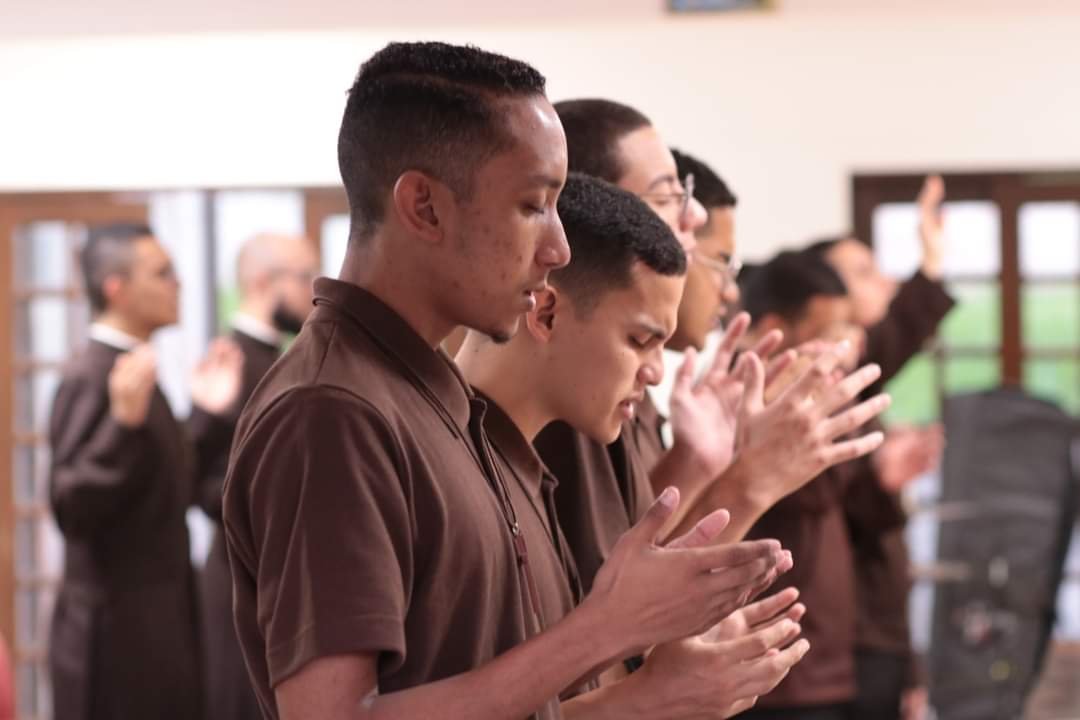Be in the world but not of it
It is not always easy to be Christian. Being a follower of Christ can lead to being scored by others. Kimberly reflects on why it is still essential for us to remember that our most important identity is being a follower of Christ.
By Kimberly Ross
Young Catholic missionaries in Brazil. (Credit: Aid to the Church in Need)
The world is obsessed with identity. It takes no time at all to observe this phenomenon in our lives and in the lives of others. Each of us belongs to ethnic groups with varying traditions and routines. But beyond that, there is identity to be found in religious practices, political ideas, social habits, hobbies, and interests. Often, lines are sharply drawn around one or more of these areas. We feel a deep sense of belonging. We can feel physically, emotionally, and even spiritually safe.
The idea of inclusion is powerful. No one wants to be an outcast. Everyone wants camaraderie of some kind. But there's a danger in the comfort of community when we refuse to step outside our boundaries. It becomes a problem when we assume others aren't worth our time and energy. Worst of all, those earthly opinions can cloud our spiritual focus and the concern we should have for those who aren't like us.
Cultural shifts and fixations are an affront to Christianity. This isn't surprising, especially given the reminder in John 15:18-19, "If the world hates you, ye know that it hated me before it hated you. If ye were of the world, the world would love his own: but because ye are not of the world, but I have chosen you out of the world, therefore the world hates you." It's not a question of if the world may or may not dislike you if you follow God unabashedly. It's confirmation that those in the world will indeed hate you if you believe in, love, follow, and share Christ. That truth isn't the easiest kind to embrace. It goes against the very grain of our individual souls. It crashes headlong into the modern world and all its trappings.
Our human reaction to discomfort is to find a way back to comfort. But our Christian reaction to the discomfort brought on by devotion to Christ and His teachings should not be to find solace. In fact, God even tells us to spread the good news around and encourage others to join the flock. This means sharing the Gospel without the illusory promises of a life of ease and fitting in. Following Christ doesn't mean a life of simplicity or calm. That's frightening enough for long-time believers. It can be even more so for those who learn of God's gift for the first time. I don't pretend to be great at feeling comfortable with discomfort. I'm not sure any Christian can honestly say that is their first instinct. But in an odd way, that realization is a good thing. We are supposed to go against our flesh. That's the entire struggle of sin and humanity. Our flawed bodies and minds yearn for satiation.
One of the beautiful things about the large community of believers is that we only need to find identity in one thing: Christ. We don't have to look alike, think alike, enjoy similar pursuits, or share exact political opinions to unify around the most important matter of all. In the age in which we live, rejecting worldly homogeneity in favour of spiritual oneness is certainly a foreign concept. But after all, this is what we strive for: to be in the world but not of it.
I look around my state and nation and see endless struggles for acceptance. I look across the sea to other countries and witness the very same thing. I see it within myself, too. If you venture online, it's even worse. Society is so fractured into categories. Self-identifying in varying ways is all the rage. And it speaks to the need for Christ. Recognizing our need, asking for forgiveness, accepting His sacrifice, and realizing the hope of heaven remains the most meaningful, long-lasting, and crucial identity of all.

